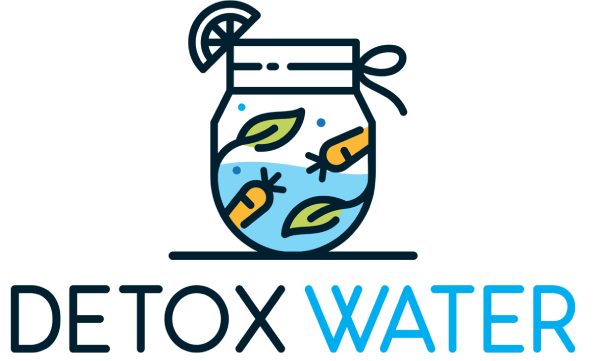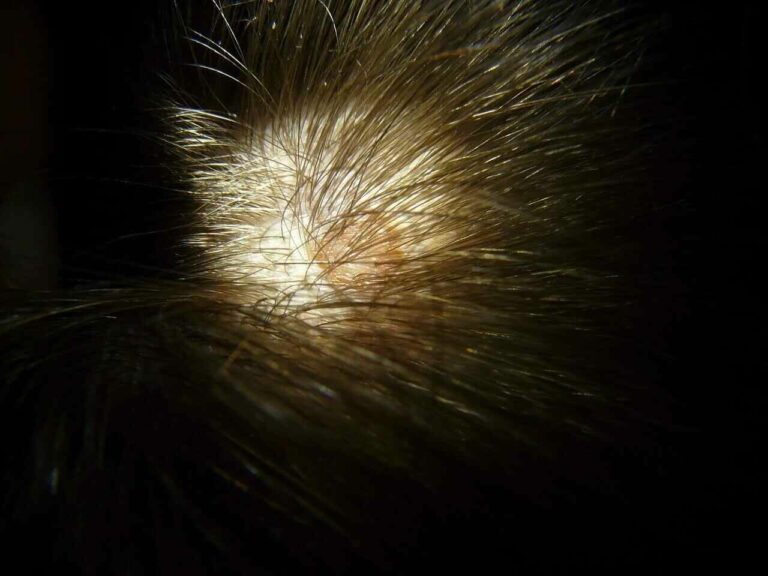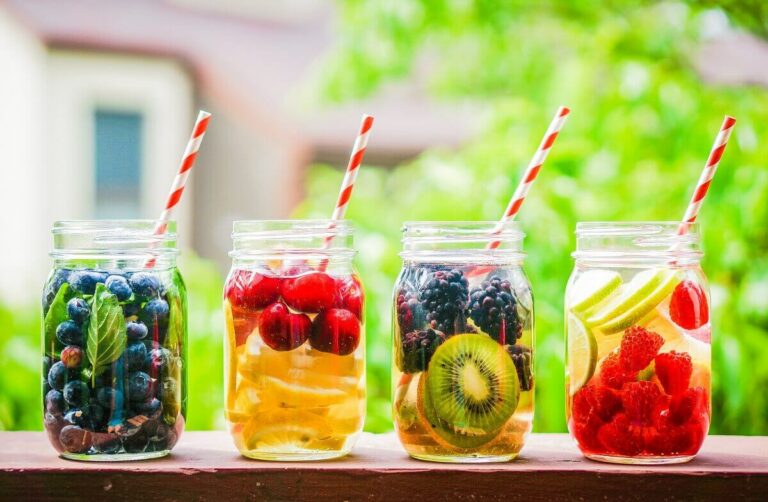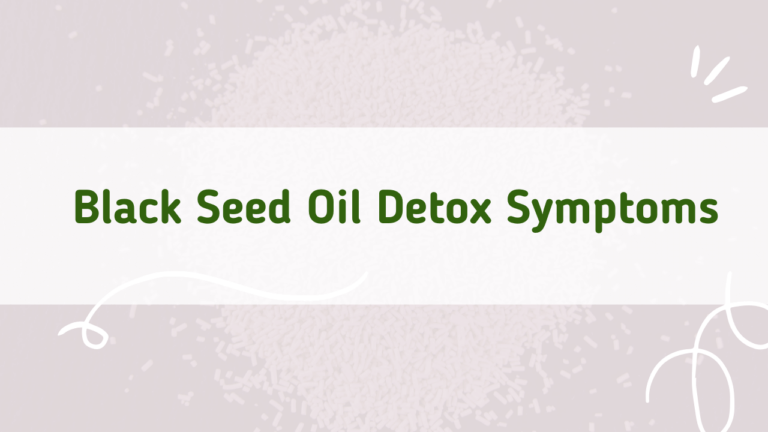Can You Eat Boiled Eggs While Detoxing?

Are you considering a detox plan but uncertain about including eggs in your dietary regimen? If you have wondered about this question for some time, you’ve come to the right place, as we have all the answers you sought.
Eggs are essential as a primary quality protein source during a detox diet, whether you’re eating them as a boiled egg, half fry, or an omelet. Protein supplies your body with vital energy and aids in cellular repair. Additionally, eggs provide an array of essential nutrients and minerals, including choline, selenium, and vitamins A and B.
Many still question their compatibility despite acknowledging the benefits of incorporating boiled eggs into your detox diet. To address these concerns comprehensively, this article will delve into pertinent queries about egg consumption, the detoxification process, optimal food choices during detox, and foods to steer clear of.
Contents
Including Eggs in a Detox Diet – Things You Must Consider
When contemplating the inclusion of boiled eggs in a detox diet, it’s imperative to keep a few things in perspective.
Massive Protein Source
Firstly, eggs are an excellent protein source and offer various nutrients, contributing to a sense of satiety and satisfaction throughout your detox process. Nevertheless, it’s crucial to exercise caution regarding the amount of eggs consumed, as they also contain cholesterol and fat.
Protein plays a vital role in detox as it aids in repairing and rejuvenating damaged cells. It is also essential for preserving muscle mass, which can be depleted during detoxification. With approximately 6 grams of protein per large egg, eggs are a commendable protein source.
Contains Saturated Fat
Eggs offer massive nutritional value because they possess nutrients and minerals that ensure a healthy diet and enhance bodily functions. These minerals include vitamins A, B, B12, and selenium.
However, you must also know that egg does contain fat and cholesterol. Fat is distributed throughout the egg, whereas cholesterol is concentrated in the egg yolk.
If you have concerns about cholesterol or fat intake during detox, you should try to eat eggs in moderation. Another thing worth adding here is that eggs are fiber-rich. So, if you wish to ensure a healthy diet, incorporating high-fiber foods such as leafy greens or whole grains would be a good idea.
If you continue a low-fat diet, you should also go for hard-boiled eggs rather than omelets. This modification allows you to enjoy the protein-rich benefits of eggs while minimizing fat intake.
Offers Versatility
Incorporating eggs into your detox diet offers remarkable versatility, allowing for effortless integration. They can be prepared in various ways, such as hard-boiling, scrambling, or creating delectable omelets. Moreover, eggs can seamlessly complement smoothies, soups, or salads, enhancing adaptability. For those seeking a lean protein snack, indulging in plain hard-boiled eggs is an excellent option.
However, it is crucial to consider your overall calorie and nutrient requirements when introducing eggs to your detox diet.
If weight loss is a goal during detox, being mindful of your calorie intake becomes imperative. Eggs are relatively calorie-dense and contain approximately 80 calories per large egg. Consequently, you should pair eggs with other low-calorie foods in your detox regimen to maintain a balanced approach.
Improves Liver Health
If your detox goals encompass specific health objectives, such as enhancing liver function, ensuring that your detox diet fulfills your nutritional requirements is imperative.
A boiled egg or otherwise is an excellent source of essential vitamins and minerals such as vitamins A, B12, and selenium. However, you should also know that eggs do not contribute significantly to dietary fiber intake. Therefore, if your detox plan focuses on enhancing your digestive system, including other fiber-rich foods in your diet is necessary.
Overall, eggs can serve as a healthful addition to a detox diet. Nevertheless, it is crucial to maintain a holistic approach by considering your overall calorie and nutrient needs when integrating them into your dietary plan.
Potential Benefits of Eating Eggs During Detoxification
Are you wondering whether you should eat eggs because you have no idea how it may impact your detox? Worry no more.
Whether your goal is to lose weight or to rid your body of toxins, eggs offer essential vitamins and minerals for your bodily functions.
The abundance of nutrients in eggs is pivotal in supporting detox. Eggs often have a massive amount of protein which is crucial for getting rid of your body of toxins and the production of enzymes. On top of that, eggs contain choline, a nutrient that supports liver function by enhancing bile production to break down and eliminate toxins from your body.
Sulfur is another nutrient in eggs that plays a vital role in producing glutathione. It is a powerful antioxidant that safeguards cells from damage while actively participating in detoxification. Moreover, eggs offer selenium, which further contributes to detoxification by protecting cells and reducing inflammation.
Eggs offer several benefits, including,
- Promotion of immune function
- Skin health
- Stronger bones
- Boost of energy
Including eggs in your detox diet chance the detox process and improves overall health. The nutrients in eggs actively support detoxification, while their various vitamins and minerals are instrumental in maintaining optimal well-being.
Precautions and Considerations for Eating Eggs While Detoxing
One of the most common questions people ask before detoxing is, “Can you eat boiled eggs while detoxing?”. And if so, what are some things they must keep in perspective, and if there are any precautions they must ensure regarding egg intake?
As mentioned earlier, eating in moderation is the key, whether eating a boiled egg or going all out on a steak. So, we have enlisted a few things to help you achieve your goals.
Here’s Everything You Must Know About Eggs and Detoxification
The first thing you must understand about detoxification is its various forms. Some detox plans, like juice cleanses, involve eliminating all solid foods. Others, such as the Master Cleanse, require you to eliminate all food and drink except for a mixture of lemon juice, cayenne pepper, and maple syrup.
You cannot f you’re following a juice cleanse or a similar detox that excludes solid foods. However, if your detox permits solid foods, eggs can be a part of your detox diet.
Eggs are a valuable source of protein and other essential nutrients, promoting a sense of satisfaction during detox. Nonetheless, there are a few factors to consider when including eggs in your detox routine:
- Opt for organic, free-range eggs to minimize exposure to toxins and chemicals.
- Exercise moderation when eating eggs, as excessive intake can raise cholesterol levels.
- And before you start, you must ensure your eggs are thoroughly cooked. Raw or half fry eggs can sometimes contain bacteria, leading to a severe health hazard. You can opt for a boiled egg instead.
So, can you eat eggs while detoxing? The answer is yes. Just remember to select organic, free-range eggs, cook them thoroughly, and maintain moderation in your intake. As with any dietary consideration, balance and moderation are key.
Best Foods to Eat During Detox
Focusing on natural, whole foods is key when going on a detox diet. It’s time to bid farewell to junk food, packaged items, processed foods, and canned goods. Instead, embrace the goodness of freshly prepared and home-cooked meals containing lean protein and healthy fats.
You should eat the following foods when on a detox diet.
Lemon
Lemons are a popular inclusion in a detox period and for a good reason. These citrus fruits are abundant in antioxidant vitamin C, essential amino acids known for their benefits in promoting healthy skin and combating disease-causing free radicals.
Artichoke
To recover from excessive fatty food and alcohol consumption, incorporating steamed globe artichoke leaves into your meals can significantly assist in restoring your body’s balance.
Furthermore, they are well-known for their ability to stimulate and enhance liver functionality, which is crucial for detoxifying the body from toxins. It’s a healthy food that you can incorporate into your diet, along with sweet potatoes and mustard greens.
Garlic
Garlic, known for its heart benefits, also has powerful detoxifying properties. It possesses antiviral, antibacterial, and antibiotic properties. It contains allicin, a chemical that stimulates the production of white blood cells and aids in combating toxins and lowering high blood pressure.
To fully harness the health benefits of garlic, it is best consumed raw. Add crushed garlic to your salad dressing to enhance its flavor and health.
Green Tea
Drink plenty of green tea to enhance your fluid intake. Not only is green tea a popular choice for weight loss, but it is also rich in antioxidants. Studies have even indicated that green tea consumption may offer protection against liver diseases, including fatty liver diseases.
Brown Rice
Brown rice is abundant in essential detoxifying nutrients like B vitamins, magnesium, manganese, and phosphorus. It is also high in fiber, which aids in colon cleansing, and contains selenium, a beneficial element for liver protection and improved complexion.
What Foods to Avoid During Detox
Some foods that you must avoid during a detox period include,
Alcohol
Alcohol significantly impacts the liver, taking a dominant role in its processes. Wine, beer, and spirits prioritize themselves, causing other substances to be sidelined and awaiting their turn.
Caffeine
Coffee is another substance that adds to the body’s chemical load, requiring additional breakdown processes. In the context of a detox, the consumption of coffee is generally only recommended for a detoxifying coffee enema.
Suppose you are accustomed to consuming a significant amount of coffee. In that case, it is advisable to gradually reduce your intake to minimize any potential side effects that may arise from a sudden change.
Dairy
Cheese is recognized as an inflammatory food that often contains added hormones. The combination of increased inflammation and hormone intake puts additional stress on the body, which is not conducive to an effective detox.
It is advisable to minimize cheese consumption and consider incorporating smoothies made with nut-based milk instead. This temporary shift can help alleviate stress on the body during the detoxification process.
Chemical-Laiden and Processed Foods
During a detox, it is crucial to avoid packaged foods that are not naturally produced, as well as soft drinks and energy drinks.
Adequate fluid intake is vital, and opting for filtered water and herbal teas is advisable. Not only are these choices beneficial for detoxification, but they also provide numerous advantages beyond the detox process.
Sugar
Avoiding sugar is also imperative to maintain blood sugar levels. Eating raw fruits or vegetables to sweeten your meals is better for good nutrition. It will prevent heart disease and improve your immune system.
Final Thoughts
A hard-boiled egg or an omelet cooked in coconut oil can offer you a healthy start to your day. You may have heard that adding eggs to your diet may harm your detoxification, but that is untrue.
Your body needs high-quality protein, amino acids, vitamin D, and other nutrients to function efficiently. Depriving your system of any of these nutrients can result in catastrophe. So, while you’re on a detoxification journey, try and avoid animal foods and focus more on incorporating whole grains.
Eat egg whites more and eat foods high in protein. Drinking water is highly imperative to rid your body of harmful toxins.
Follow this diet, and you will soon see a massive difference in your overall health.

Rahul is a nutritionist and personal trainer with 3+ years of experience in the field of health coaching. He specializes in nutrition science, with a keen eye for how food choices, lifestyle habits, and physical activity impact our bodies.
Education and Certifications
- Diploma in Dietetics Health and Nutrition
- ACE Certified Personal Trainer
- ISSA Certified Nutritionist
Professional Accomplishments
He has worked with clients of all ages and specialized in different areas such as diabetes and sports nutrition. He has also implemented successful nutrition and training programs leading to long-term health outcomes.
With his extensive background in nutrition and health, he has been able to successfully contribute to multiple health-related blogs and websites. Additionally, he has developed educational materials and conducted seminars on the topic of nutrition for local businesses, providing them with key insights into how they can make better nutrition decisions.






